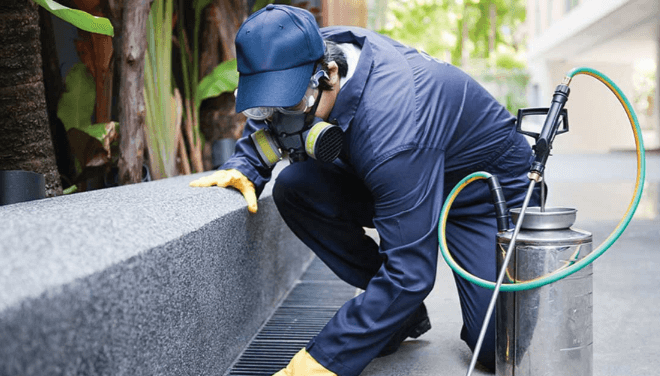Top 5 Signs You Need Pest Control Services

Pests in the home are more than just an annoyance; they can pose significant health risks and cause extensive property damage if not managed properly. Choosing the right pest control service is crucial in ensuring that your home remains safe, clean, and pest-free. But with so many options available, how do you know which service is the best fit for your needs? In this article, we’ll explore the essential factors to consider, the questions you should ask, and the red flags to watch out for when selecting a pest control service.
Understanding Your Pest Problem
Before you begin your search for a pest control service, it’s important to understand the specific pest problem you are dealing with. Different pests require different treatments, and some services specialize in specific types of pests. Common household pests include ants, termites, rodents, bed bugs, and cockroaches. Identifying the type of pest infestation will help you narrow down your options to those services that have expertise in handling your specific issue.
Understanding the severity of the infestation is equally important. A minor ant problem might be manageable with a simple over-the-counter solution, whereas a termite infestation often requires professional intervention. Assess the scale of the problem by noting where the pests are most commonly found, their numbers, and any damage they may have caused.
Researching Potential Pest Control Companies
Once you have a good grasp of the pest problem, it’s time to research potential pest control companies. Start by gathering recommendations from friends, family, or neighbors who have faced similar issues. Online reviews and ratings can also provide insight into a company’s reputation and customer satisfaction. Look for companies with consistently high ratings and positive feedback.
Next, visit the websites of the companies you are considering. A professional-looking website that clearly outlines their services, pricing, and credentials is a good sign of a reputable business. Be sure to check for certifications and memberships in professional pest control associations, such as the National Pest Management Association (NPMA). These affiliations often indicate that the company adheres to industry standards and ongoing education.
Evaluating Experience and Expertise
Experience is a critical factor in choosing the right pest control service. Companies with a long track record are likely to have encountered a wide range of pest issues and developed effective strategies for dealing with them. However, don’t just take their word for it; ask for specific examples of similar cases they have handled and the outcomes.
In addition to general experience, inquire about the specific expertise of the technicians who will be working on your home. Are they trained and certified in pest control? Do they undergo regular training to stay updated on the latest pest control methods and products? A knowledgeable technician can make a significant difference in the effectiveness of the treatment.
Understanding Treatment Methods and Products
The methods and products a pest control service uses are just as important as their experience. There are various approaches to pest control, ranging from chemical treatments to environmentally friendly or organic methods. Ask the company to explain their treatment process and the types of products they use.
If you have concerns about the safety of chemicals, especially if you have children or pets, inquire about alternative options. Many companies now offer green pest control solutions that minimize the use of harmful chemicals. Ensure that the methods used are not only effective but also safe for your family and the environment.
Understanding the treatment plan also includes knowing how many visits will be required to fully address the problem. Some infestations may require multiple treatments over time, so it’s important to get a clear idea of the scope of work and any follow-up visits.
Assessing Customer Service and Communication
Good customer service and clear communication are essential components of a reliable pest control service. From your initial inquiry to the completion of the job, the company should be responsive, courteous, and willing to answer all your questions. Pay attention to how they handle your inquiries—are they patient and informative, or do they rush through explanations?
Communication is also crucial during the treatment process. The technicians should clearly explain what they will be doing, why they are doing it, and what you can expect in terms of results and potential side effects. After the treatment, they should provide you with detailed instructions on any necessary follow-up actions or precautions.
Checking for Licensing and Insurance
One of the most important steps in choosing a pest control service is verifying that the company is properly licensed and insured. Pest control professionals are required to have a license to operate, which ensures that they meet the minimum standards set by the state or local government. Ask to see the company’s license number and check with your local regulatory agency to confirm its validity.
Insurance is equally important. A reputable pest control company should carry both general liability insurance and workers’ compensation insurance. This protects you in case of accidental damage to your property or if a worker is injured while on your premises. Never work with a company that cannot provide proof of both licensing and insurance.
Understanding Pricing and Contracts
Pricing can vary widely between pest control services, depending on the type of pest, the extent of the infestation, and the treatment method used. When comparing prices, it’s important to get a detailed quote from each company, outlining all costs involved. Beware of companies that offer quotes over the phone without inspecting your property, as this can lead to unexpected costs later on.
In addition to understanding the cost, carefully review the terms of any contract you are asked to sign. Some pest control services require a long-term contract for ongoing treatment, while others offer one-time services. If a contract is involved, make sure it clearly states the frequency of visits, the specific services included, and any guarantees or warranties offered.
Looking for Guarantees and Warranties
A strong guarantee or warranty can provide peace of mind that the pest control service stands behind its work. Look for companies that offer a satisfaction guarantee, meaning they will return to re-treat the problem if the pests return within a certain period. Some companies also offer warranties that cover future infestations for a specified time after the initial treatment.
Make sure to get any guarantees or warranties in writing and fully understand the terms. Ask what is covered and what is not, and be aware of any conditions that might void the warranty, such as not following the technician’s aftercare instructions.
Considering the Environmental Impact
As concerns about the environment continue to grow, more homeowners are seeking pest control services that offer environmentally friendly solutions. If this is important to you, look for companies that use Integrated Pest Management (IPM) techniques, which focus on prevention, monitoring, and controlling pests with the least amount of chemical intervention.
IPM strategies may include physical barriers, habitat modification, and the use of biological control agents, in addition to chemical treatments when necessary. Choosing a company that prioritizes sustainable practices can reduce the environmental impact of pest control and ensure a safer living space for your family.
Evaluating Emergency Services Availability
Pest infestations don’t always occur at convenient times, and in some cases, immediate action is required. For example, discovering a wasp nest or a severe rodent problem might necessitate urgent treatment. When choosing a pest control service, inquire about their availability for emergency services.
A good pest control company should offer flexible scheduling options and be able to respond quickly in emergencies. Find out if they have a 24/7 hotline or if they can accommodate same-day or next-day service for urgent situations.
Reviewing Testimonials and Case Studies
Testimonials and case studies can provide valuable insights into a pest control company’s effectiveness and customer satisfaction. Many companies feature testimonials on their websites, but it’s also worth checking independent review sites for a more balanced perspective.
Case studies are particularly useful as they provide detailed examples of how the company handled specific pest problems. These real-life scenarios can give you a better idea of what to expect in terms of results and customer experience.
Asking for References
If you’re still unsure about a company, don’t hesitate to ask for references. A reputable pest control service should be willing to provide contact information for previous clients who can speak to their experience. When contacting references, ask about the quality of service, the effectiveness of the treatment, and whether the pests were successfully eradicated.
Understanding the Importance of Follow-Up Services
Effective pest control often requires ongoing monitoring and follow-up treatments to prevent future infestations. Ask the company about their follow-up services and what is included in their standard package. Some companies offer periodic inspections as part of their service, which can help catch potential problems before they become serious.
Understanding the follow-up process is essential for ensuring long-term protection against pests. Make sure to clarify any additional costs associated with follow-up visits and whether they are included in the initial contract.
Being Aware of Red Flags
Finally, be aware of red flags that might indicate a less-than-reputable pest control service. Beware of companies that offer unusually low prices, as this may be a sign of substandard products or services. High-pressure sales tactics, such as pushing for immediate signing of a contract or offering discounts for on-the-spot decisions, are also warning signs.
Additionally, be cautious of companies that cannot provide proper licensing or insurance information or those that are unwilling to answer your questions or provide references. Trust your instincts—if something feels off, it’s better to move on and find a more trustworthy provider.
FAQs
How do I know if a pest control service is reputable?
Look for a pest control service with a strong track record, positive customer reviews, proper licensing, and insurance. Membership in professional associations like the NPMA is also a good sign of a reputable company.
What should I expect during a pest control inspection?
During an inspection, the technician will assess the extent of your pest problem, identify the type of pest, and suggest a treatment plan. They should explain the process clearly and answer any questions you have.





